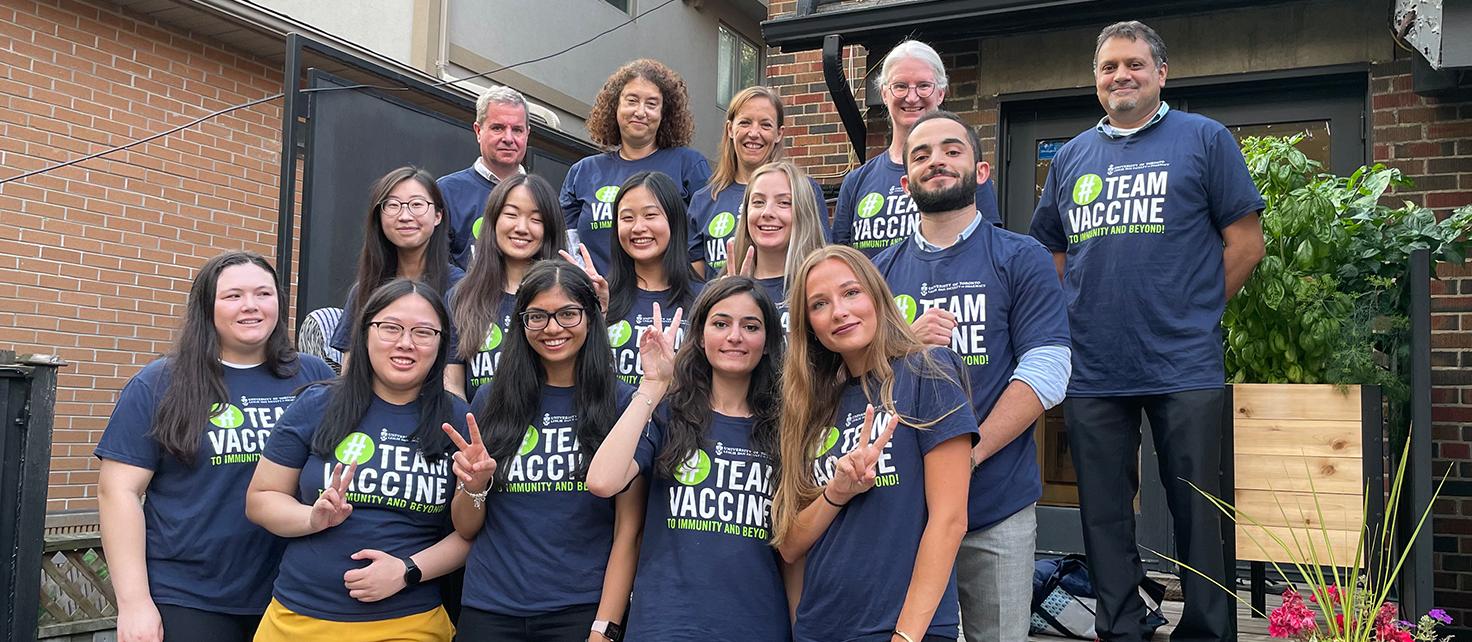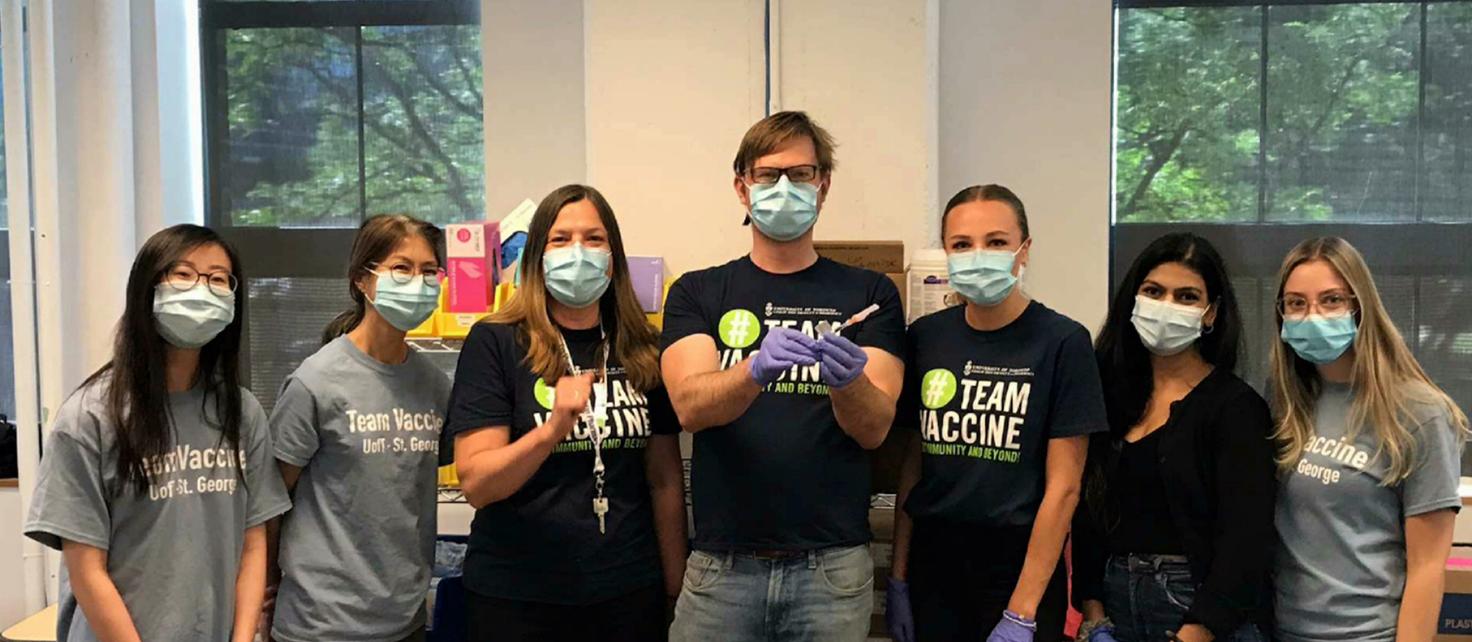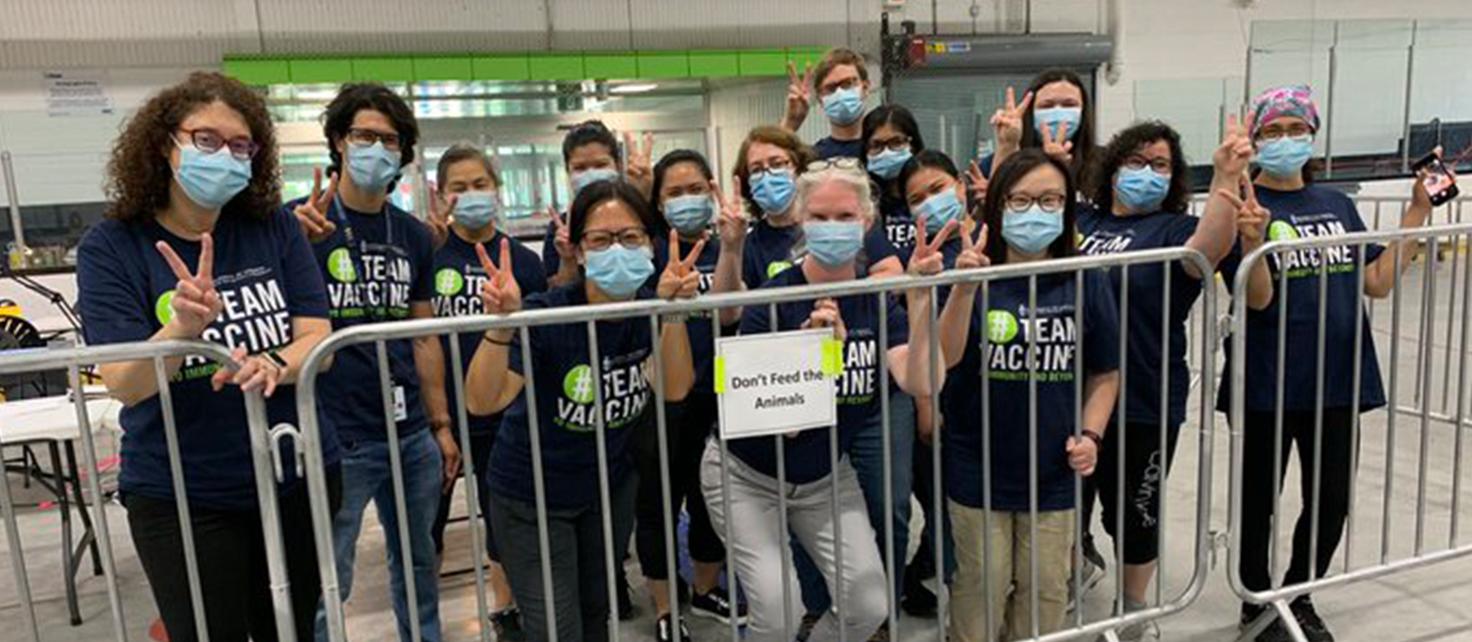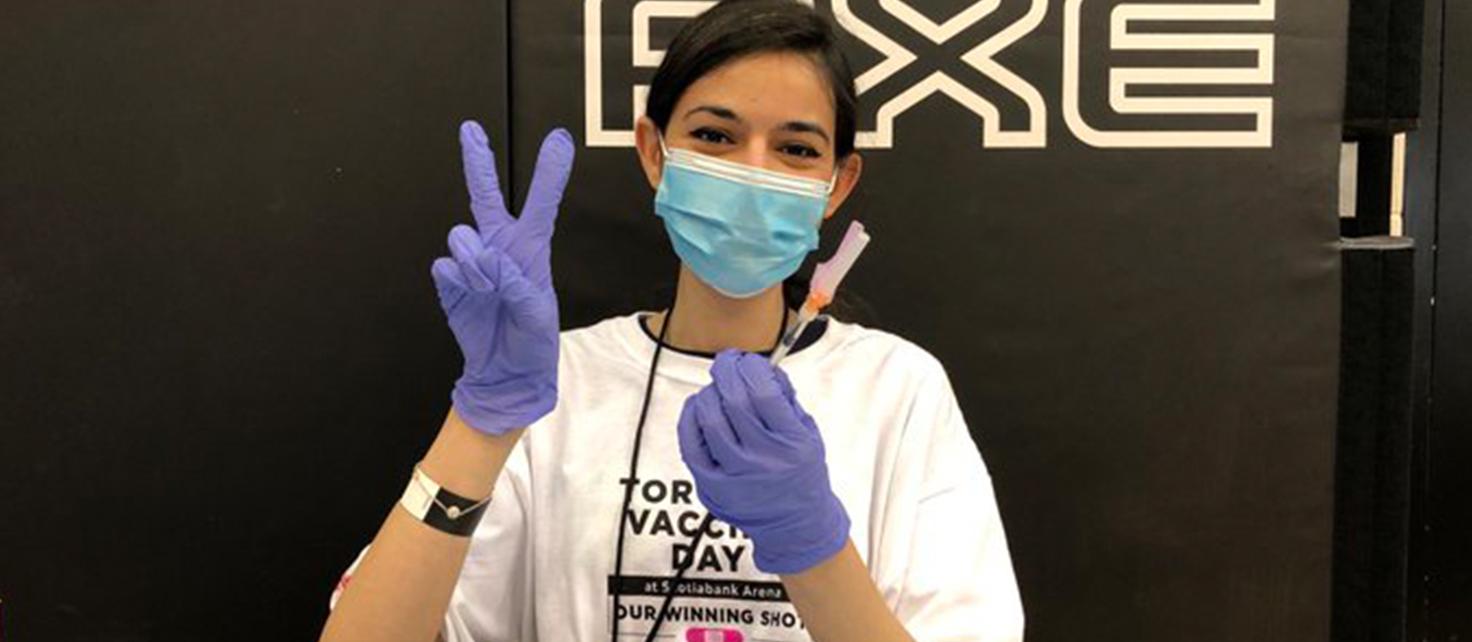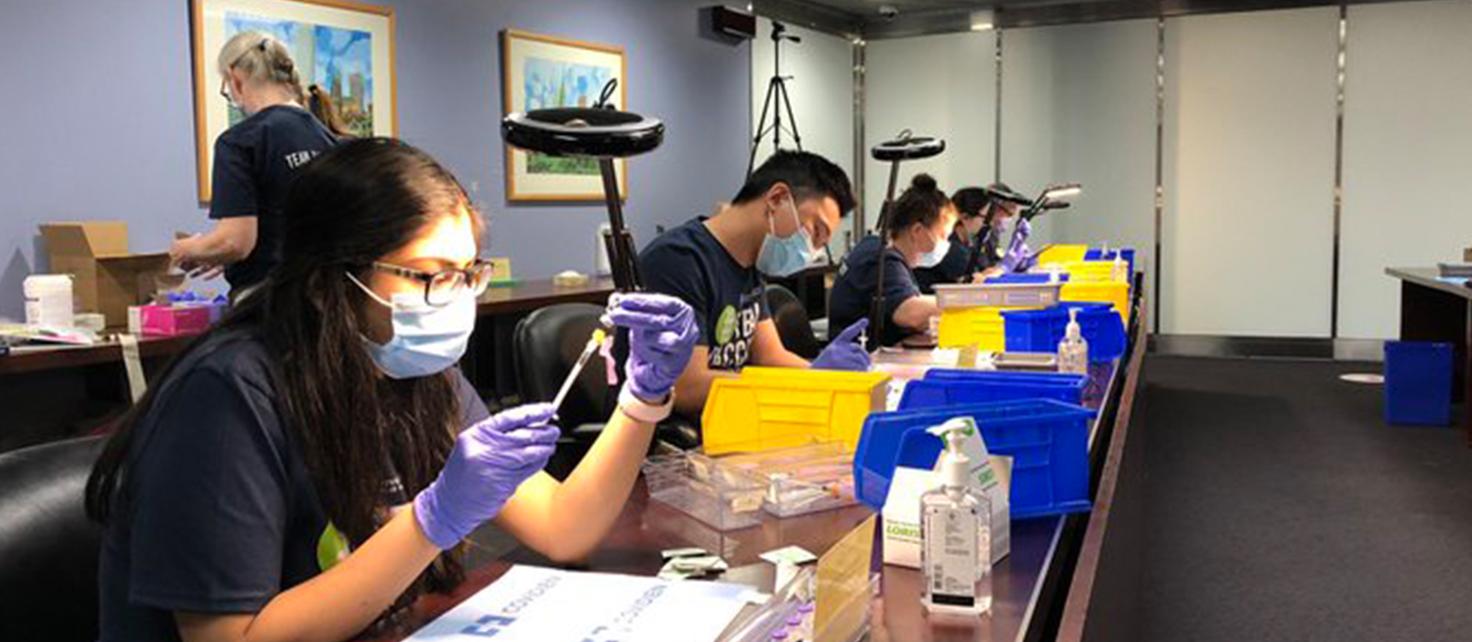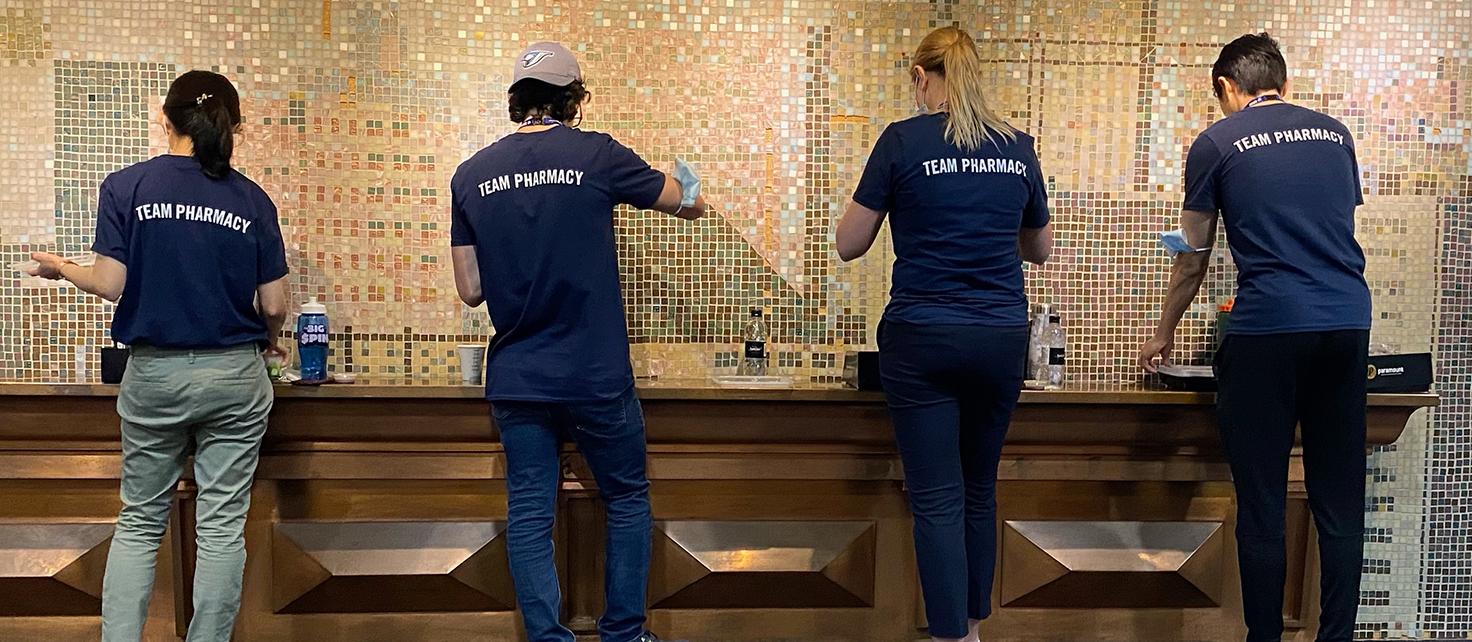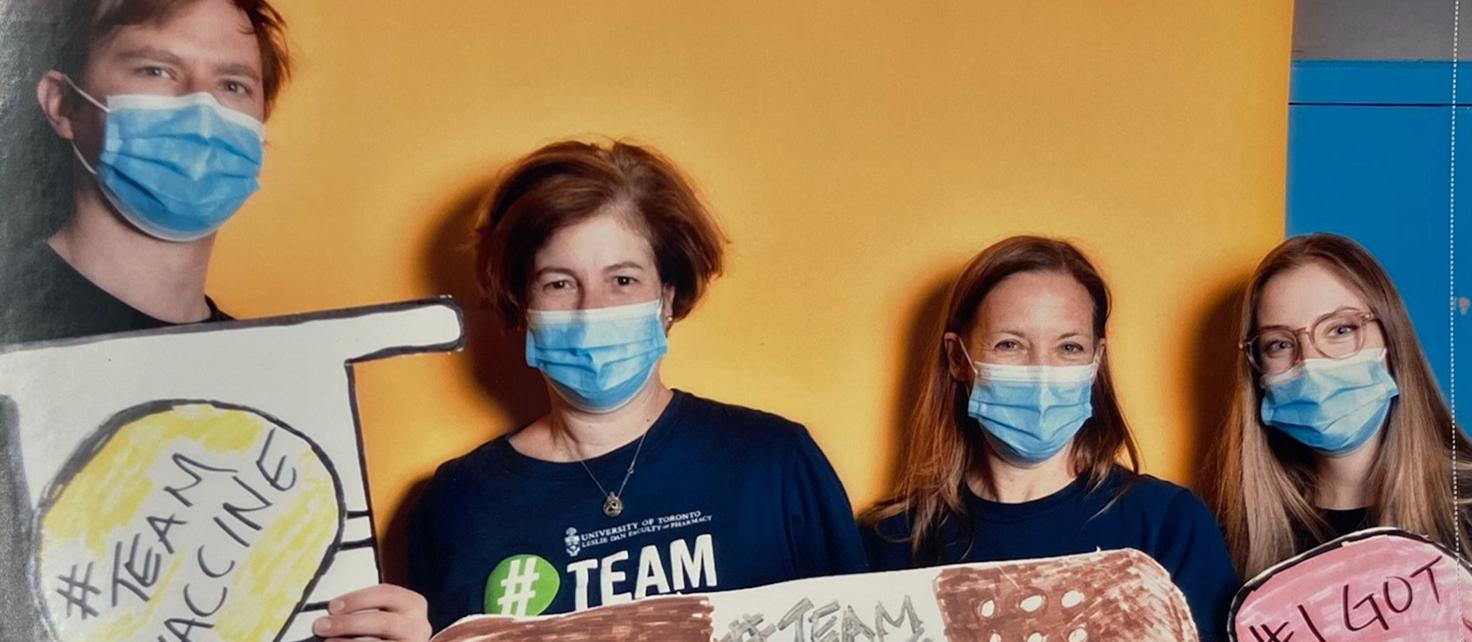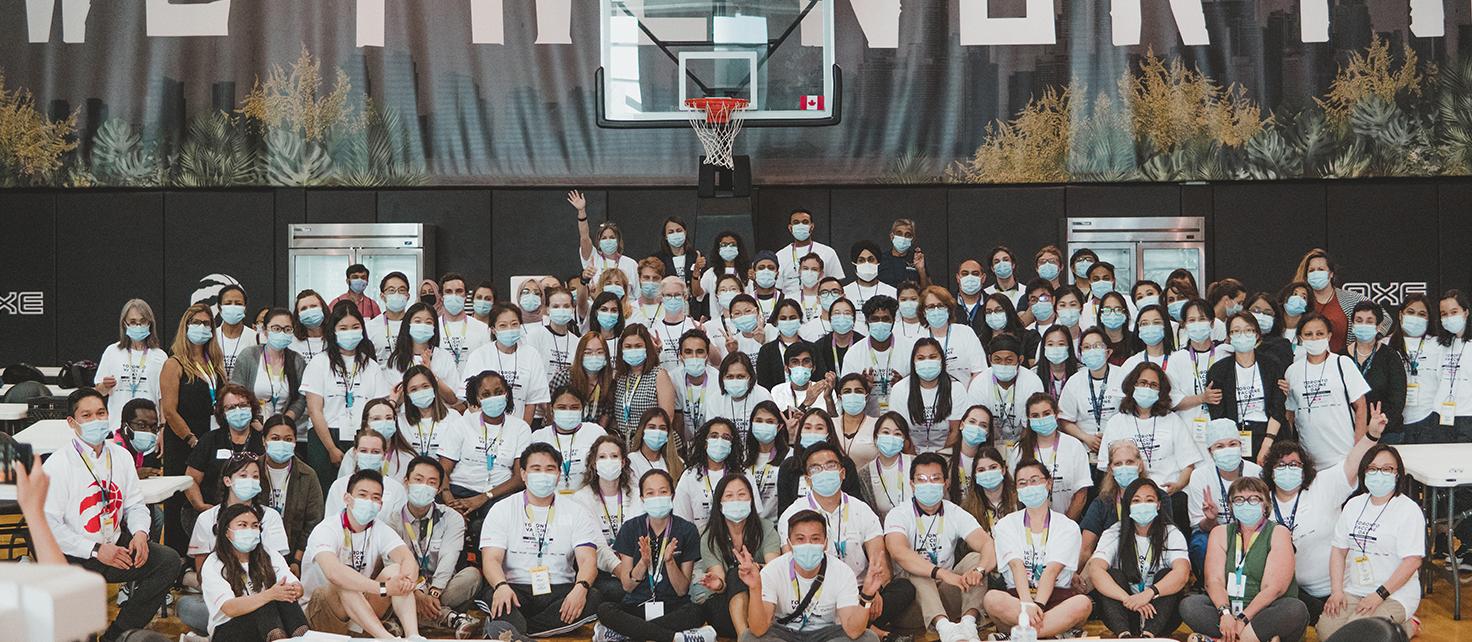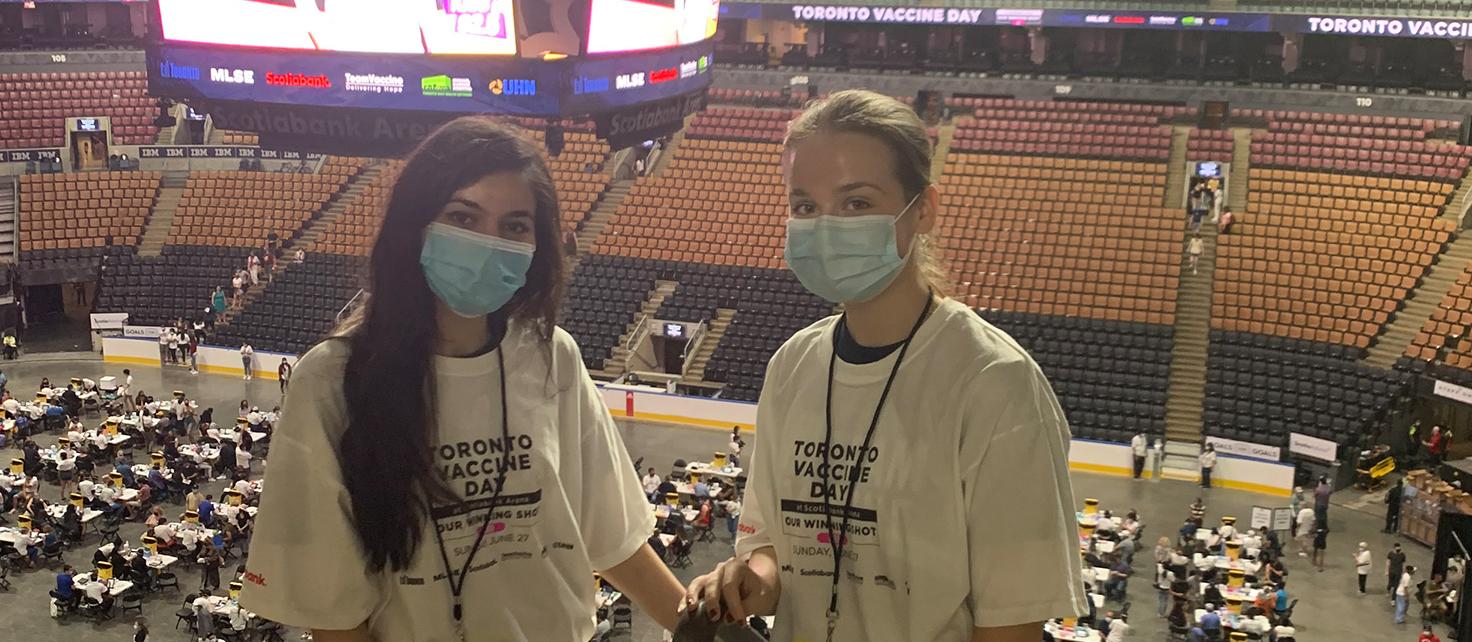
By: Abbas Al-Jabri, 2T3, Zena Al-Janaby, 2T3, Paulina Kmiec, 2T3, Anna Kukovska, 2T4, Caitlin Lam, 2T3, Vivian Le, 2T3, Annie Li, 2T3, Pooja Patel, 2T4, Jenna Rizzo, 2T3, Veronica See, 2T3
Pharmacy students at the University of Toronto’s Leslie Dan Faculty of Pharmacy have played a key role in supporting the provincial vaccination campaign. Working with the University Health Network (UHN)/ U of T St George Campus Clinic pharmacy students helped host COVID-19 vaccination clinics throughout the Greater Toronto Area. The students share their remarkable experiences and reflections below:
Our pharmacy team had the important role of ensuring the safe handling and preparation of vaccines for clinics, which requires careful precision and technique. As we worked with other health care professionals to deliver vaccines into the arms of Canadians, we observed the many fascinating shapes and forms that a clinic can take.
Accessible and culturally appropriate vaccine delivery
In March 2021, the U of T exam centre on McCaul Street was transformed into a UHN vaccination site. In addition to local vaccination efforts, this site hosted clinics aimed to improve access to special populations including migrant workers, Indigenous peoples and clients of the Hospital for Sick Children. To ensure these clinics were safe and low-barrier spaces, multilingual translators, sensitivity training, modesty rooms, cultural rituals (i.e., smudging) and fun activities (ice cream trolleys and photo booths) were incorporated. Implementing these small adjustments to the clinic demonstrated our respect for the community and their traditions, allowing members to feel safe and equitably acknowledged. Through the success of these inclusive clinics, we came to appreciate that responding to people’s diverse needs is instrumental to facilitate trust in seeking healthcare.
As vaccination rates climbed across Ontario, there were notable differences in vaccine uptake within marginalized communities. In April 2021, 22 per cent of residents in Toronto's more affluent St. Clair and Rosedale neighbourhoods received at least one dose, in contrast to 5.5 percent in the Black Creek area. This may owe to demographics, as neighbourhoods with higher percentages of South Asian, Black, and Latin American groups were associated with lower rates of vaccination. Given this disparity, a variety of pop-up clinics designed to provide appropriate cultural and religious care were held in racialized areas. For example, we supported the Jamaican Canadian Association and Black Physicians’ Association of Ontario to host clinics with an authentic Afro-Caribbean atmosphere in the Black Creek community and offered wrap-around care such as blood glucose testing and blood pressure monitoring. The first Canadian Emancipation Day celebrations happened around us, which included live music, steel pan drumming and inspirational speeches. All the pop-up clinics had staff and volunteers from local community organizations and welcomed patients with a familiar and safe atmosphere to help alleviate the stress associated with vaccinations. Clinics such as these demonstrated the importance of collaboration and community engagement.
More than 26,000 vaccines delivered in one day at Toronto mass vaccination clinic
Mass vaccination clinics at Nathan Phillips Square and Scotiabank Arena allowed us to be part of something that brought all of Toronto together. While we were expecting these large-scale events to be chaotic and stressful, they were exceptionally organized and uplifting. These clinics offered live music, free ice cream, raffle tickets and free transportation which created a joyful environment and made vaccines more accessible. At Scotiabank Arena, an impressive world record of 26,771 doses were administered in one day.
Nearing the end of the summer, traffic to pop-up clinics declined despite known communities with below-average levels of vaccination. A clinic hosted in early August for youth sports clubs yielded low turn-out even with incentives such as free haircuts and food. This may be a symptom of the vaccine hesitancy that still lingers despite Toronto’s impressive vaccination rates. A survey from June indicated that 14 per cent of Canadians were unlikely to get the vaccine, and an additional 9.4 per cent of Canadians were unsure. Reaching this group is essential to achieving herd immunity and protecting the most vulnerable.
Shedding light on health care barriers amidst a pandemic
The vaccination efforts have shed light on the accessibility and cultural barriers in the healthcare system. While it is far from equitable, the variety of clinics hosted in this unprecedented time of need for access has opened our eyes to the expansive potential of the healthcare system to become a safe space for all. From preparing vaccines in the backrooms of churches to seeing doses administered in a candle lit basement - these experiences have taught us resilience in adapting to changing environments, and commitment to a high standard of care. Pharmacists at the forefront of vaccination efforts are in a uniquely accessible position to correct misinformation. We have observed the importance of starting from a place of empathy - listening to patients and supporting cultural needs to earn the trust of hesitant groups.
As mass vaccination clinics wind down, it is our responsibility to continue reaching out to communities and providing solutions that address the inequities and challenges in our healthcare system.
More News
Image

Dean Lisa Dolovich reappointed for second term
Professor Lisa Dolovich has been reappointed for a second term as Dean of the Leslie Dan Faculty of Pharmacy, University of Toronto, effective July 1, 2025, to December 30, 2030.
Read More
Image

Pharmacy Summer Camp gives high school students insight into pharmacy profession
A new summer camp based at the faculty will give high school students a range of experiences in pharmacy and pharmaceutical sciences.
Read More
Image

Team GloveLift wins 2025 Business Plan Competition with innovative medical device
PharmD students win $5,000 prize for their innovative medical device concept aimed at improving patient care.
Read More
